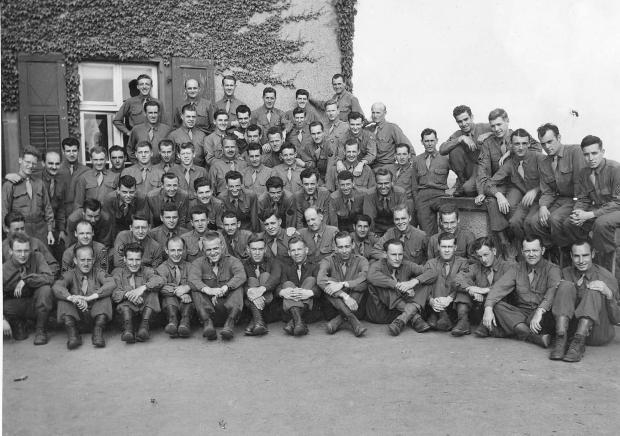THE GHOST ARMY
Little is known about WWII’s “Ghost Army”, an American special unit stationed in Europe made up of a thousand artists, actors, designers, audio technicians and engineers. They were hand-picked in the summer of 1944 and arrived in Normandy, France just a few weeks after D-Day. Chosen for their creativity, ingenuity and acting ability, the sole mission of this group was to deceive and mislead the German troops into believing the Allied forces were in one location when in reality they were someplace else.
Inspired by a British unit who used similar techniques in the Battle of El Alamein in Egypt in 1942, the Ghost Army (aka the 23rd Headquarters Special Troops) staged more than 20 battlefield deceptions. Combining inflatable tanks, canons, jeeps, trucks and airplanes with sound trucks and giant speakers, they were able to create a “fake army”. In a style somewhat reminiscent of an episode from the television program Hogan’s Heroes, they created so much chaos and confusion that many German troops were sent off course. Using pre-recorded sound tracks and fake transmissions, this phantom division appeared to be a very large army that the Axis forces could not resist. The ones who were not suckered in by the fake battlefields were sometimes misled by the “Spoof Radio” broadcasts where actors impersonated radio operators from real units. They even staged fake diversion stories in local coffee shops for the benefit of eavesdropping spies.
As the Allied troops moved east, these “Cecil B. DeMille warriors” and their traveling road show followed, crossing through France, Belgium, Luxembourg and eventually ending along the Rhine River in Germany in March 1945. Their sonic and visual tricks and props saved the lives of thousands of soldiers, and helped catapult the careers of fashion designer Bill Blass, artist Ellsworth Kelly and music photographer Art Kane.
Originally considered the brain child of actor Douglas Fairbanks, Jr., who was a US naval officer at the time and a student of British psychological warfare, the Ghost Army never employed tactics that were “violent”… and their creativity and ingenuity were used instead of weapons. Somehow, their actions seem more “fair” and easier to support, and I can see myself standing along the sidelines of one of their battles applauding their originality at deceiving the enemy. What never seemed fair to me, however, were the demoralizing tactics employed by the Japanese at the same time in the South Pacific. Under the general name of Tokyo Rose, a dozen English-speaking females were hired by the Japanese military to broadcast anti-US propaganda to American soldiers listening every evening. Using the very clear signal of Radio Tokyo, these women utilized psychological warfare to make the lonely and vulnerable soldiers more nostalgic and homesick. They played popular music such as the song “My Resistance is Low” and then would devastate the soldiers by telling them that their girls back home were seeing other men. They also verbally abused the men by calling them “boneheads”, “fighting orphans” or other derogatory terms to make them feel stupid and not loved or appreciated. Although many soldiers recognized the propaganda for what it was, many were lured in by the sound of a female voice and the chance to hear some of their favorite songs.
Although the Ghost Army’s mission was classified as Top Secret until 1996, there are still parts that remain classified today. While many of us find their story fascinating, there will be some who don’t understand why we had to wait 50+ years to hear about them. There is also the issue of how much a nation should be told by their government when it comes to covert operations, which is similar to today’s debate over “surveillance”. So many of us are shocked by how intrusive the US government has been, and we now fear the “Big Brother” depicted in George Orwell’s 1984. Although I am a firm advocate of truth and full disclosure and believe in the constitutional right to privacy, I don’t believe it is in the best interests of national security for the public to know ALL the details behind every government action or program. But today, our trust in government is at an all-time low, and we are struggling to find the right balance between a government that is too powerful (where the individual feels they have no say) versus a weak government (where laws are not enforced and common goals are not achieved).
Copyright © 2013 (Michelle Parsons, Getting Back on Your Path). All Rights Reserved.

